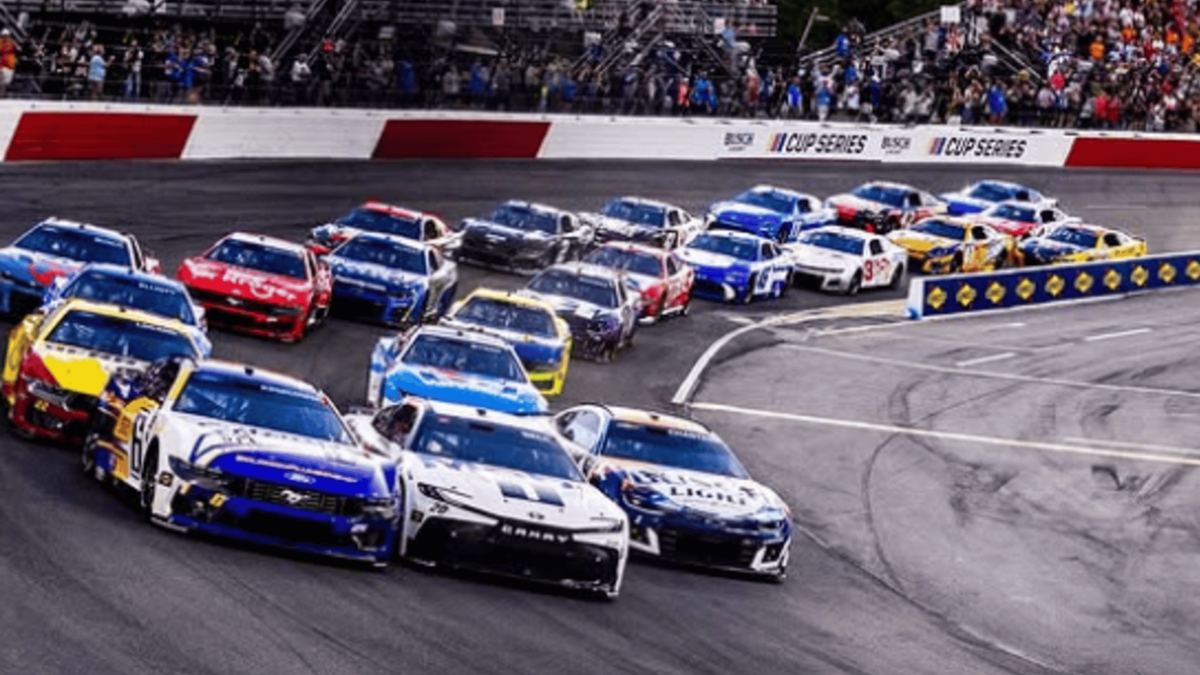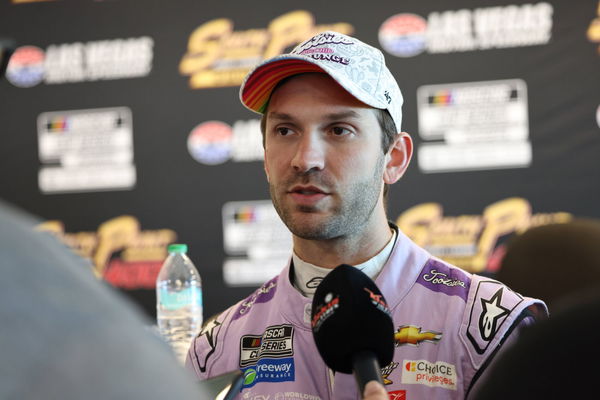

The roar of engines alone cannot carry NASCAR into its next era; it is going to take something deeper. Beneath the helmets and beyond the checkered flags lies the emotional engine of the sport, which is the drivers themselves. For decades, NASCAR thrived on personality as much as horsepower, from Dale Earnhardt’s steely glare to Tony Stewart’s fiery tirades. But in an increasingly sanitized, sponsor-heavy world, that human element has been muted. Therefore, there is one Cup Series driver trying to bring about the change from the inside.
Watch What’s Trending Now!
Daniel Suarez, the only Mexican-born driver to win a NASCAR national series title, has been speaking boldly about the changes needed and the measures required to bring about that change. As fans drift toward other sports and streaming culture reshapes how we engage with athletes, the call has grown louder to make NASCAR known to a larger audience, and according to Suarez, it all starts with the drivers.
ADVERTISEMENT
Suarez calls for an unfiltered NASCAR authenticity
Some drivers, like Carson Hocevar, have been debated for their aggressive yet impressive driving styles. Kevin Harvick on his “Happy Hour” podcast praised Hocevar’s bold approach, saying, “Keep standing on the gas, Carson… If you learn by standing on the gas, being up front you’re going to learn more anyway,” but if the very essence of his racing style is erased, there will be nothing left of the Carson Hocevar that NASCAR fans see on the track. And this is what Daniel Suarez fears will ruin the sport.
Answering Jeff Gluck’s famous 12 Questions for The Athletic, Suarez was asked to give opinions on the efforts NASCAR needs to put in to take it to the next level of popularity. He argued that to capture real, lasting attention, NASCAR must use an unfiltered perspective on the lives of its drivers. “The Netflix show ‘Full Speed’ is a great way to get to know drivers on a personal level. I personally have learned a lot about all the drivers just from watching this show,” said Suarez. “A lot of fans know who I am as a driver, but they don’t know who I am as a person.” Most of the time, personalities are misunderstood, but if that is to be dealt with, one has to portray both sides of the mirror and let others accept the reality rather than whitewashing it.
But, just as Formula 1 seems to have been restricted in its portrayal of real feelings increasingly every year, so is NASCAR as it continues to spread across the global market. “I wish sometimes NASCAR let us open up a little bit more (without) the fines and all the different things. If you’re aggressive and you want to show your emotions, show it,” continued Suarez. “If you want to say something on the radio, say it. I don’t want drivers to be too vanilla. I wish we could be allowed a little bit more to show whatever we’re thinking or our emotions.”
ADVERTISEMENT
Suarez and other NASCAR veterans have also seen fines and penalties being imposed on drivers for playing too aggressively. But isn’t that exactly what the audience craves? Some notable examples can be seen in the case of Noah Gragson’s $35,000 fine for fighting Ross Chastain or the 2022 fine on Bubba Wallace, a sum of $50,000 and suspension for intentionally wrecking Kyle Larson. While it is needed to keep racing intense but also within reason, and no wonder, people are complaining about unnecessary restrictions in a supposedly free and high-octane sport.
In a recent penalty imposed on Ricky Stenhouse Jr., Daniel Suarez noticed a significant shift towards suppressing the emotional authenticity that has long been a hallmark of the sport, homogenizing the behavior of drivers, stripping away the unique personalities that make the sport compelling. “They want to see who’s Daniel Suarez, who is Ricky Stenhouse, who is Chase Elliott? Who are all these people? Because in my mind, if we go this route, eventually every single driver is going to be acting exactly the same,” said Suarez.
ADVERTISEMENT
The oldest rivalries in NASCAR stemmed from aggressive racing and countless bumps both on the track and off it. Some of the ‘bad boys’ of the iconic racing eras, like Tony Stewart in the 2000s and Richard Petty in the 70s, raced without any fear of controversy, with resilience and grit. But with them now gone, it is hard to tell whether NASCAR is evolving from its roots or disappearing from its traditions.
On the other hand, the sport has been trying to open its wings globally. With the inclusion of tracks in Mexico, there might be a time when we witness NASCAR gaining traction from the audience outside America. But what exactly would bring about this enthusiasm? “Having a wife from Brazil, me being from Mexico, and I have spent a lot of time in Europe. There are a lot of NASCAR fans around the world, and NASCAR obviously is working very hard on this,” added Suarez. “But we have to continue that path, because there is just a lot of opportunity.”

Imago
LAS VEGAS, NV – OCTOBER 19: Daniel Suarez 99 Trackhouse Racing Tootsies Orchid Lounge Chevrolet answers questions from members of the media during a media bullpen before practice and qualifying for the South Point 400 NASCAR, Motorsport, USA Cup Series playoff race on October 19, 2024, at Las Vegas Motor Speedway in Las Vegas, NV. Photo by Marc Sanchez/LVMS/Icon Sportswire AUTO: OCT 19 NASCAR Cup Series South Point 400 EDITORIAL USE ONLY Icon144241019047
A product of NASCAR’s Drive for Diversity program, Suarez battled language and cultural barriers to earn respect and drive home victories. He himself has been involved in growing NASCAR’s Hispanic fanbase, launching initiatives like “Daniel’s Amigos” and fueling the sport’s diversity push. But with more and more restrictions from NASCAR on global platforms, it becomes hard for the one-man army to succeed in his outlook and dreams of growing NASCAR’s future.
ADVERTISEMENT
Global growth requires a global mindset. While he affirms the U.S. is NASCAR’s cornerstone market, he also warned that the sport must double down on international expansion. “Obviously, the United States is our main market, and that’s going to continue to be the main market forever,” said Suarez. “With that being said, there are opportunities to continue to grow south of the border, like we’re doing with Mexico. In South America — Brazil and Argentina — you have no idea how big motorsports are down there. It’s huge. The race in Mexico is going to be the beginning of a lot more things internationally, hopefully,” and he might just be right in his predictions. Formula 1, rallying, IndyCar, and other motorsports have shown a massive appetite south of the border. To tap into it, NASCAR must deliver either the stage by exporting its series or by spotlighting relatable, fiery characters who transcend language and borders.
While this may take time and dedication to materialize, Suarez’s proposal is clear: let drivers breathe, let them be bold, and the world will watch.
ADVERTISEMENT
ADVERTISEMENT
ADVERTISEMENT
ADVERTISEMENT

